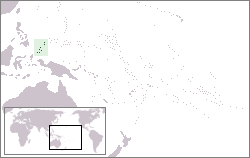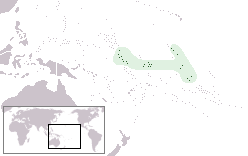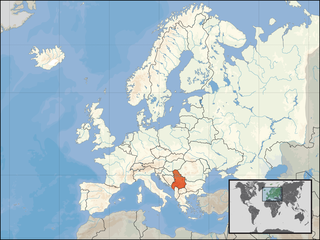
The United Nations Security Council (UNSC) is one of the six principal organs of the United Nations (UN), charged with ensuring international peace and security, recommending that the General Assembly accept new members to the United Nations, and approving any changes to its charter. Its powers include the establishment of peacekeeping operations and international sanctions as well as the authorization of military actions through resolutions – it is the only body of the United Nations with the authority to issue binding resolutions to member states. The council held its first session on 17 January 1946.

The United Nations member states are the 193 sovereign states that are members of the United Nations (UN) and have equal representation in the UN General Assembly. The UN is the world's largest intergovernmental organization.
A United Nations Security Council resolution is a UN resolution adopted by the fifteen members of the Security Council; the UN body charged with "primary responsibility for the maintenance of international peace and security".

United Nations Security Council resolution 1244, adopted on 10 June 1999, after recalling resolutions 1160 (1998), 1199 (1998), 1203 (1998) and 1239 (1999), authorised an international civil and military presence in the Federal Republic of Yugoslavia and established the United Nations Interim Administration Mission in Kosovo (UNMIK). It followed an agreement by Yugoslav President Slobodan Milošević to terms proposed by President of Finland Martti Ahtisaari and former Prime Minister of Russia Viktor Chernomyrdin on 8 June, involving withdrawal of all Yugoslav state forces from Kosovo.

United Nations Security Council Resolution 83, adopted on June 27, 1950, determined that the attack on the Republic of Korea by forces from North Korea constituted a breach of the peace. The Council called for an immediate cessation of hostilities and for the authorities in North Korea to withdraw their armed forces to the 38th parallel. They also noted the report by the United Nations Commission on Korea that stated North Korea's failure to comply with Security Council Resolution 82 and that urgent military measures were required to restore international peace and security.
UN Security Council Resolution 1834 was adopted unanimously by the 15 member states of the United Nations Security Council, extending the United Nations mission in Chad and the Central African Republic (MINURCAT) until March 15, 2009, which was due to expire on September 25, 2008.

United Nations Security Council resolution 702, adopted without a vote on 8 August 1991, after examining separately the applications of the Democratic People's Republic of Korea and the Republic of Korea for membership in the United Nations, the Council recommended to the General Assembly that North Korea and South Korea be admitted.

United Nations Security Council resolution 817, adopted unanimously on 7 April 1993, after examining the application of the Republic of Macedonia for membership in the United Nations, the Council recommended to the General Assembly that Macedonia be admitted to membership in the United Nations, this State being provisionally referred to for all purposes within the United Nations as "the former Yugoslav Republic of Macedonia" pending settlement of the difference that has arisen over the name of the State.

United Nations Security Council resolution 963, adopted unanimously on 29 November 1994, after examining the application of the Republic of Palau for membership in the United Nations, the Council recommended to the General Assembly that Palau be admitted.

United Nations Security Council resolution 1248, adopted without a vote on 25 June 1999, after examining the application of the Republic of Kiribati for membership in the United Nations, the Council recommended to the General Assembly that Kiribati be admitted, bringing total membership of the United Nations to 186.

United Nations Security Council resolution 1326, adopted without a vote on 31 October 2000, after examining the application of Federal Republic of Yugoslavia for membership in the United Nations, the Council recommended to the General Assembly that Yugoslavia be admitted.

United Nations Security Council resolution 1078, adopted unanimously on 9 November 1996, after expressing concern at the situation in the African Great Lakes region, the Council discussed proposals for a regional conference on security and a multinational humanitarian force in eastern Zaire.

United Nations Security Council resolution 1182, adopted unanimously on 14 July 1998, after reaffirming resolutions 1125 (1997), 1136 (1997), 1152 (1998), 1155 (1998) and 1159 (1998) regarding the situation in the Central African Republic, the Council extended the mandate of the United Nations Mission in the Central African Republic (MINURCA) until 25 October 1998.

United Nations Security Council resolution 1271 was adopted unanimously on 22 October 1999, after reaffirming all resolutions on the situation in the Central African Republic, including resolutions 1159 (1998), 1201 (1998) and 1230 (1999). The Council extended the mandate of the United Nations Mission in the Central African Republic (MINURCA) until 15 February 2000 with a view to its transition from a peacekeeping operation to a post-conflict peace-building presence.

United Nations Security Council resolution 1522, adopted unanimously on 15 January 2004, after recalling all previous resolutions on the situation in the Democratic Republic of the Congo, the Council welcomed efforts to establish the first integrated and unified brigade in Kisangani as a step towards forming a national army. It was the first Security Council resolution adopted in 2004.

The permanent members of the United Nations Security Council are the five states which the UN Charter of 1945 grants a permanent seat on the UN Security Council: The People's Republic of China, the French Republic, the Russian Federation, the United Kingdom of Great Britain and Northern Ireland, and the United States of America. These countries were all allies in World War II, which turned out victorious. They are also all nuclear weapons states. A total of 15 UN member states serve on the UNSC, the remainder of which are elected. Any one of the five permanent members have the power of veto, which enables them to prevent the adoption of any "substantive" draft Council resolution, regardless of its level of international support.

The Republic of Korea and the Democratic People's Republic of Korea were simultaneously admitted to the United Nations (UN) in 1991. On 8 August 1991, the UN Security Council passed United Nations Security Council Resolution 702, recommending both states to the UN General Assembly for membership. On 17 September 1991, the General Assembly admitted both countries under Resolution 46/1.














